
Thursday, 28 May 201508:00 | Registration | 09:00 | Inauguration | |
Opening Lecture |
| | 09:15 | 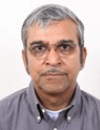 | Keynote Presentation Proteomics, High Throughput Science and India - Cancer Perspective
Ravi Sirdeshmukh, Distinguished Scientist & Associate Director , Institute of Bioinformatics, India
|
| 10:15 | Coffee Break and Networking Session | |
SESSION 1: NGS Challenges and Possible Solutions/ Session Chair: Surinder Sahota |
| | 10:35 | 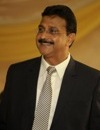 | Keynote Presentation Next Generation Sequencing from Indian Perspective: Opportunities and Challenges
B R Das, Advisor & Mentor- R&D, CoE, Molecular Pathology, SRL Limited, India
This talk will highlight the Opportunities and Challenges faced in
Next Generation Sequencing from Indian Perspective. It will discuss about the
role of NGS multiple gene panels in diagnostics, prognostics and treatment of
diseases. Further, it will discuss the challenges faced in setting up the
infrastructure including huge investment along with technical skills required
in terms of laboratory experiment and interpretation of the huge data in Indian
Labs. |
| 11:30 | Integrating Bioinformatics Tools and Infrastructure to Enable High-Throughput Biology
Sven Nahnsen, Head, University of Tuebingen, Germany
This talk
will present the latest developments towards the integrative analysis of
large and complex NGS-based data. Further, it will discuss its Integrated
Technology which includes Liferay as a portlet container and gUSE/WS-PGRADE
as a workflow engine and finally on openBIS for data management application. | 12:05 | 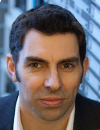 | Keynote Presentation Analysis Challenges and Solutions for Cancer Genomics Data
Anthony Papenfuss, Head, Bioinformatics and Cancer Genomics Laboratory, Peter MacCallum Cancer Centre, Australia
In
this talk, some of the Challenges, Solutions and open questions will be
discussed. It will cover analysis in clinical cancer genomics and genomics
discovery projects and will highlight the progress made in developing tools to
support analyses, method validation and reporting. In addition, it will cover
single nucleotide variants and copy number analysis. . Further, the talk will
introduce several tools that have been developed and will discuss how the data
and the questions have influenced the tools developed.
|
| 13:00 | Poster Viewing | 13:15 | Lunch Break and Networking Session | |
SESSION 2: Applications of NGS-I/ Session Chair: Bibhuranjan Das |
| | 14:00 | 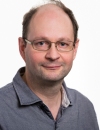 | Keynote Presentation Genome Regulation in Fission Yeast
Jurg Bahler, Professor, University College London, United Kingdom
This Keynote Presentation will highlight the method used for
Quantification of Transcriptome and how this Integrated data set supports quantitative biology and affords unique insights into cell regulation. It will also discuss how Cell-Cycle regulated transcription tunes mRNA numbers to phase-specific requirements. In addition, it will also throw light about analyses of non-coding RNAs, alternative splicing and intronic lariats/ branch points based on RNAs, alternative splicing and intronic lariats/branch points based on RNA- seq data sampled in different physiological conditions and mutant backgrounds. |
| 14:55 | Hybrid Genome Assembly with Multi-Platform NGS Data
Farhat Habib, Scientist, IISER, India
This talk will illustrate
few Hybrid Approaches used for assembling data from multiple sequencing
platforms to form Hybrid Genome which allows one to correct for the biases and
errors of one platform with information from a complementary platform. Further,
it will also discuss the approach taken with the assembly of the Hydra vulgaris
genome which is a complex genome with a large repeat content.
| 15:30 | Coffee Break and Networking Session | |
SESSION 3: Applications of NGS-II/ Session Chair: Anthony Papenfuss |
| | 15:50 | De novo Genome Assembly and Annotation of Indica Rice
Malali Gowda, Director, Centre for Cellular and Molecular Platforms, India
This talk will highlight the role of NGS Technologies in generating High Quality rice genome assembly and annotation. Initially, it will present the deep sequence of first indica cultivar, HR12 and assembly of HR12 genome using combination of Illumina’s short reads and PacBio long reads which improves the quality of HR12 assembly and annotation. Finally, it will discuss how HR12 genomic resources (assembly, annotated genes, repeats, variants etc) from this study will accelerate rice improvement programs in India and beyond. | 16:25 | De novo Transcriptome Analysis- Insights from Plant Transcriptome Data
Sriram Parameswaran, Chief Technology officer, Genotypic Technology Pvt Ltd, India
This talk will highlight how De novo transcreiptome sequencing enables to explore rare and non-genetically characterized plants obtained in situ and identify its genetic coding complement. Further, it will also discuss how De novo transcriptome data can be used to assign functional classes, pathway and derive gene interaction that encode novel biochemical activity. This talk will focus on biological insights obtained from de novo transcriptomics of medicinal plants exploring the insights from three cases.
| 17:00 | Identification of Immunity-Related Genes in the Burying Beetle Nicrophorus vespilloides by Suppression Subtractive Hybridization
Chandan Badapanda, Senior Scientist, Xcelris Genomics, India
In
this talk, screening results for immunity
related genes in the burying beetle Nicrophorus vespilloides using the
suppression subtractive hybridization approach will be discussed. Initially,
identification of putative gene objects Nicrophorus cDNA library using ABI
3730 xl automatic DNA sequencer (PE Applied Biosystems), Sequence assembly with
Lasergene software package (DNAStar Inc.), enrichment for transcripts will be
covered. In addition, In addition, factors involved in mRNA stability
determination and central components of the RNA interference machinery identified
will be discussed. Further, it will also discuss how it has set up individual
searchable databases for the complete sequence dataset and used this to
identify the genes. | 17:20 | End of First Day of Conference |
Friday, 29 May 2015 |
SESSION 4: Understanding Cancer using Next Generation Sequencing/ Session Chair: Sven Nahnsen |
| | 09:15 | A 10-year Anthology of Sequencing and it's Role in Understanding Cancer
Sanjay Joshi, CTO, EMC Emerging Technologies Division, United States of America
This talk will present the
instrumentation, analytics used for completion of the Human Genome project,
ENCODE Phases I and II, RNA-seq, ChIP-seq, and many more landmarks along with
its interpretation. Further, it will
discuss the effect of these changes in the understanding of cancer. | 09:50 | Cancer Genome Sequencing and Precision Medicine: What are the Challenges?
Kumar Somasundaram, Professor, Indian Institute of Science, India
This talk will highlight success and
difficulties faced in data generation using Next Generation Sequencing with
respect to Glioblastoma. In addition, it will also cover various aspects like
genetic and epigenetic alterations in glioma, serum biomarkers using
high-throughput genomics and proteomics approaches, genome-wide shRNA screening
for temozolomide sensitivity and exome sequencing to understand the glioma
biology. | 10:25 | Coffee Break and Networking Session | |
SESSION 5: Next Generation Sequencing in Cancer Research/ Session Chair: Jurg Bahler |
| | 10:55 | Making Sense of Cancer Evolution with Next Generation Sequencing
Anthony Papenfuss, Head, Bioinformatics and Cancer Genomics Laboratory, Peter MacCallum Cancer Centre, Australia
This talk will focus on
Investigating Tumour Evolution by Next Generation Sequencing. Initially, this
talk will describe sequencing of Primary Melanomas, Multiple Metastases and
Several Liposarcomas cell lines. Further, it will discuss how data inference,
statistical Inference and Comutational Modelling helps inferring
the order of Mutations in Cancer. | 11:30 | 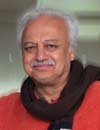 | Keynote Presentation Next Generation DNA Sequencing in Probing Tumour Origins and Behaviour in Haematological Malignancy
Surinder Sahota, Reader, University of Southampton, United Kingdom
This Keynote Talk will focus on Haematological Malignancy,
particularly B-lymphoid Neoplasms and will describe NGS approaches that allows
insights into origins of Human Multiple Myeloma (MM). It will further review
key elements of MM genome as emerged from NGS Studies. In addition, profiling
of tumour clone in response to therapy using NGS approaches will be highlighted
which is essential to provide individualised therapy in cancer patients. |
| 12:25 | Translating Cancer Genomics to Medicine
Amit Dutt, Principal Investigator, Scientist F, Tata Memorial Centre, India
This talk will highlight
newer generation SNP arrays and massively parallel Next Generation DNA
sequencing technologies for complete genome characterization of Cancer will
helps in advancing Cancer Sciences and leading to discovery of novel molecular
subclasses, new therapeutic targets and biomarkers for clinical development. In
addition, this talk will discuss how by
using these and conventional technologies will help to the identification
of causal alterations in human cancer and discovery of novel somatic activating alterations
at FGFR2, EGFR, AKT, PDGFRA and FGFR1 mutations in
endometrial cancer, lung squamous carcinoma and cervical carcinoma. Finally,
it will discuss the recent advances in discovery and characterization of some novel potentially therapeutic target in
Indian samples of lung carcinomas and head and neck cancer. | 13:00 | Poster Viewing | 13:15 | Lunch Break and Networking Session | |
SESSION 6: Advanced Practices in NGS based Genomics and Proteomics/ Session Chair: Ravi Sirdeshmukh |
| | 14:00 | Fast and Accurate Mapping of Short Reads from Next Generation Sequencing Platforms
Debnath Pal, Associate Professor, Indian Institute of Science, India
| 14:35 | Integrating Microarray, RNA-seq & Proteomics Data for Biomarker Discovery & Network Analysis
Kshitish Acharya, Faculty Scientist, Institute of Bioinformatics & Applied Biotechnology, India
| 15:10 | Coffee Break and Networking Session | 15:40 | 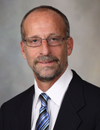 | Keynote Presentation Using Next Generation Sequencing to Study How Human Papillomavirus is responsible for the Development of a Number of Different Cancers
David Smith, Professor, Mayo Clinic, United States of America
This Keynote Talk will discuss the study of whole
exome next generation sequencing (NGS) of cervical adenocarcinomas which
suggests that HPV is integrated to exonic sequences and plays role in cancer
development. Further, it will also discuss the studies with OPSCCs, using both
RNA sequencing and mate-pair whole genome sequencing (WGS). Finally, it will
demonstrate how NGS could play an important role in the clinical management of
HPV-driven cancers, both in terms of defining the best strategies for the
clinical management of these cancers and for monitoring each cancers response
to clinical treatment. |
| 16:45 | Poster Award Presentation & Vote of Thanks | 17:00 | End of Conference |
|

 Add to Calendar ▼2015-05-28 00:00:002015-05-29 00:00:00Europe/LondonInternational Conference on Advances in Next Generation SequencingInternational Conference on Advances in Next Generation Sequencing in BangaloreBangaloreSELECTBIOenquiries@selectbiosciences.com
Add to Calendar ▼2015-05-28 00:00:002015-05-29 00:00:00Europe/LondonInternational Conference on Advances in Next Generation SequencingInternational Conference on Advances in Next Generation Sequencing in BangaloreBangaloreSELECTBIOenquiries@selectbiosciences.com